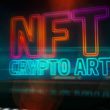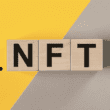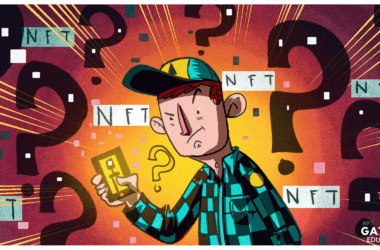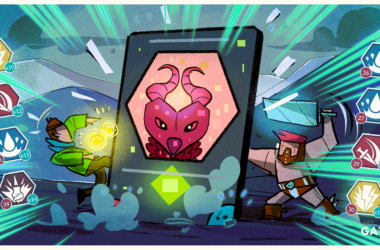If you’ve been keeping up with the latest trends in the world of digital art, you may have heard of NFTs. Recently, a new type of NFT has emerged: NFT tickets. In this article, we’ll explore what NFT tickets are, how they work, and why they’re becoming increasingly popular in the entertainment industry.
What are NFTs?
Before we dive into NFT tickets, let’s briefly cover what NFTs are. NFTs are digital assets that represent ownership of a unique item, such as an image, video, or piece of music. Unlike traditional assets, such as stocks or bonds, NFTs are indivisible and cannot be exchanged for an equal asset. Each NFT is one-of-a-kind and has a unique value based on the demand for the item it represents.
How do NFTs work?
NFTs are built on blockchain technology, which provides a decentralized platform for transactions. Each NFT is created as a unique digital asset and stored on the blockchain, along with a record of its ownership history. The ownership of an NFT can be transferred through the blockchain network, and each transaction is recorded in a public ledger, providing a transparent and secure record of ownership.
What are NFT tickets?
NFT tickets are a new type of NFT that represents ownership of a ticket to an event, such as a concert, sports game, or festival. Similar to traditional tickets, NFT tickets grant access to a specific event, but they are unique digital assets that can be bought, sold, and traded on blockchain networks.
How do NFT tickets work?
NFT tickets work similarly to traditional tickets, with one key difference: they are digital assets that are stored on a blockchain network. When you buy an NFT ticket, you are buying ownership of a unique digital asset that represents a ticket to an event. The ownership of the NFT ticket can be transferred through the blockchain network, allowing buyers and sellers to exchange ownership of the ticket without the need for a centralized ticketing system.
Why are NFT tickets becoming popular?
NFT tickets are becoming increasingly popular in the entertainment industry for several reasons. First, they provide a more secure and transparent method of ticketing. Since each NFT ticket is stored on a blockchain network, it is impossible to counterfeit or duplicate. Additionally, the ownership of an NFT ticket is transparent and can be easily tracked, reducing the likelihood of fraud or scalping.
Second, NFT tickets provide a new revenue stream for artists and event organizers. Since NFT tickets can be bought, sold, and traded on blockchain networks, artists and event organizers can earn a percentage of the profits from secondary market sales. This creates an incentive for artists and event organizers to offer NFT tickets as a premium option for fans.
Advantages of NFT tickets
- More secure and transparent than traditional tickets
- Provides a new revenue stream for artists and event organizers
- Can be bought, sold, and traded on blockchain networks
Disadvantages of NFT tickets
- Limited accessibility to those unfamiliar with blockchain technology
- Potential for high fees and gas costs when buying and selling NFT tickets
- Market volatility may lead to unpredictable prices for NFT tickets
NFT tickets vs traditional tickets
Traditional tickets are physical items that grant access to an event. They are typically printed on paper or issued as digital copies, and their ownership is tracked through a centralized ticketing system. In contrast, NFT tickets are unique digital assets that are stored on a blockchain network, providing a more secure and transparent method of ticketing. Additionally, NFT tickets can be bought, sold, and traded on blockchain networks, providing a new revenue stream for artists and event organizers.
Use cases for NFT tickets
NFT tickets can be used for a variety of events, including concerts, sports games, festivals, and more. They can also be used for exclusive events or meet-and-greet opportunities with artists or celebrities. Additionally, NFT tickets can be used for virtual events, such as online concerts or live streams.
Examples of NFT tickets
Some examples of NFT tickets include Kings of Leon’s recent album release, which was offered as an NFT bundle that included a digital copy of the album and a unique NFT ticket to a future concert. The NFT ticket provided access to exclusive content and VIP perks at the concert. Another example is the Major League Baseball game between the Oakland Athletics and the Toronto Blue Jays, which offered NFT tickets as a premium option for fans.
How to buy NFT tickets
To buy NFT tickets, you will need to have a cryptocurrency wallet and be familiar with blockchain networks. Those tickets are typically sold on specialized NFT marketplaces, such as OpenSea or Nifty Gateway. To buy an NFT ticket, you will need to place a bid or buy it at the listed price using cryptocurrency.
How to create NFT tickets
To create NFT tickets, you will need to mint them on a blockchain network, such as Ethereum or Binance Smart Chain. You can use a platform like Mintable or Rarible to create and sell your NFT tickets. When minting an NFT ticket, you can set the parameters for the ticket, such as the event date and time, location, and any additional perks or benefits.
Future of NFT tickets
The future of NFT tickets is still uncertain, but it is clear that they are becoming an increasingly popular option for artists and event organizers. As blockchain technology becomes more accessible and mainstream, it is likely that more events will offer NFT tickets as a premium option for fans. Additionally, the potential for secondary market sales of NFT tickets provides an incentive for artists and event organizers to offer them as a premium option.
Conclusion
NFT tickets are a new type of NFT that represents ownership of a ticket to an event. They provide a more secure and transparent method of ticketing and offer a new revenue stream for artists and event organizers. While there are some disadvantages to NFT tickets, such as limited accessibility and potential high fees, they offer a promising new option for the entertainment industry.
Can I buy NFT tickets with traditional currency?
No, NFT tickets are typically bought and sold using cryptocurrency.
What happens if I lose my NFT ticket?
Since NFT tickets are stored on a blockchain network, it is unlikely that you will lose your ticket. However, it is important to store your cryptocurrency wallet information securely.
Can NFT tickets be refunded?
NFT tickets are typically non-refundable, but this may vary depending on the event organizer's policies. It's important to check the terms and conditions before purchasing an NFT ticket.
Will NFT tickets replace traditional tickets?
It's unlikely that NFT tickets will completely replace traditional tickets, as they have some limitations in terms of accessibility and familiarity with blockchain technology. However, NFT tickets may become a popular premium option for events, offering unique perks and benefits to fans.





